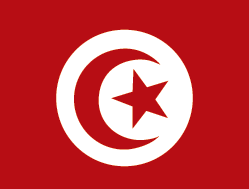
Mohamed Bouazizi is a street sailor, 26 years old, living and working in Sidi Bouzid.
After being arrested and having his material consficated by the local police, commits
suicide by fire, in front of the Governorate building. He will die early January 2011,
because of his injuries
This immolation leads to protests in the city of Sidi Bouzid, that denounces State and
Police harassment, and terrible social and economical life conditions in the interior
regions of Tunisia.
These protests spread out all around Tunisia, and will have as a final result,
departure of Ben Ali, after 24 years in power.
Bouazizi became the symbol of Tunisian revolution, and more, the beginning of the so
called Arab spring.
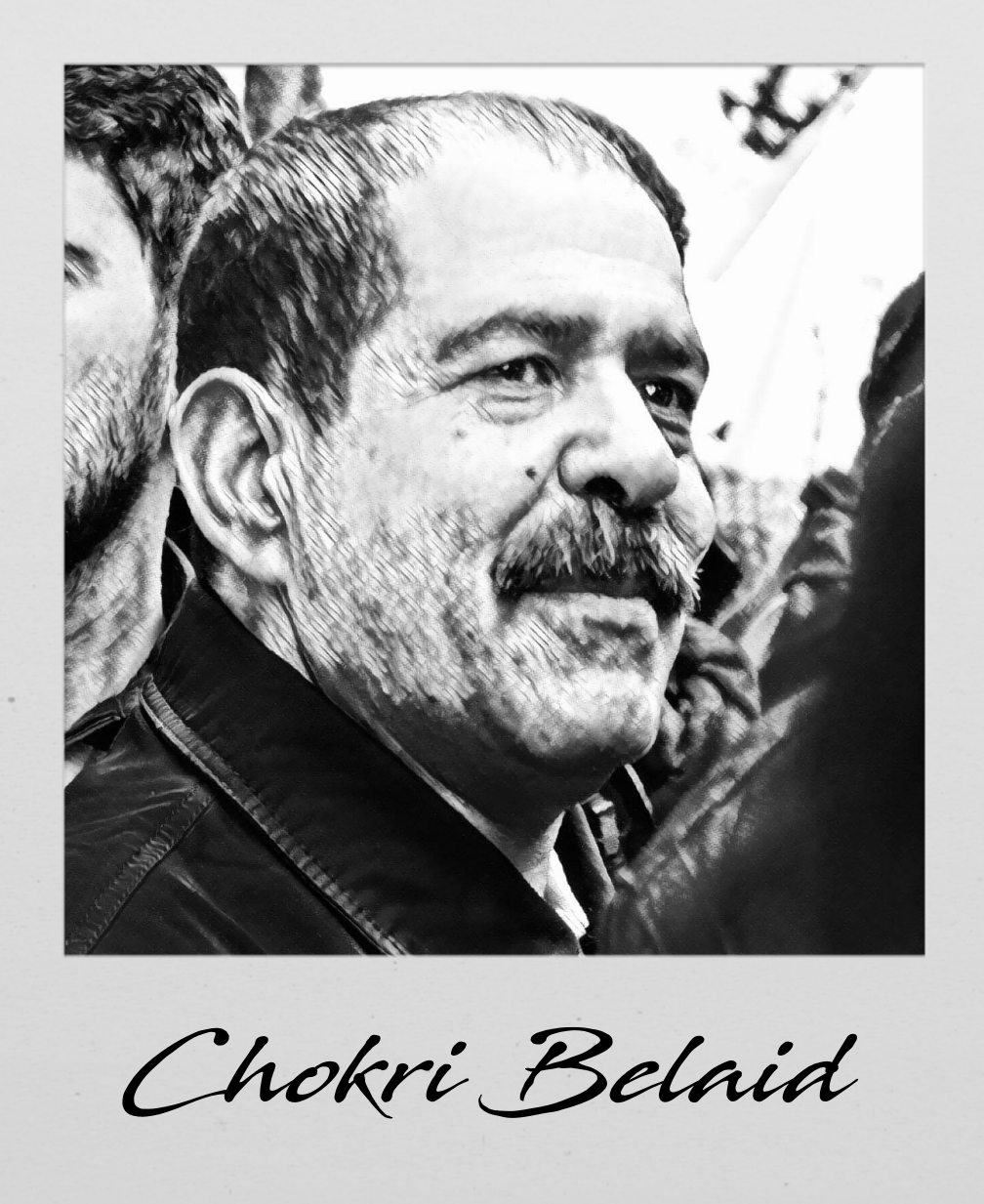
Born in 1964, Chokri Belaid was a Tunisian lawyer and politician who led a very active
career: he began activism during his studies in the 1980s.
Chokri Belaid was known for being a very strong critic of the Ben Ali regime; in 2008,
he spoke out against the clapdown of miners and since, up to Ben Ali self exile.
He was also critic to the Islamist led Tunisian government and the supporters of
fundamentalist Islam.
Belaid was assassinated on February 6, 2013, outside of his house in Menzah, in Tunis.
His death triggered national outrage and a series of protests that led Prime Minister
Hamadi Jebali to dissolve the government and form a temporary national unity government.
Up till now, responsible of his assassination have not been identified.
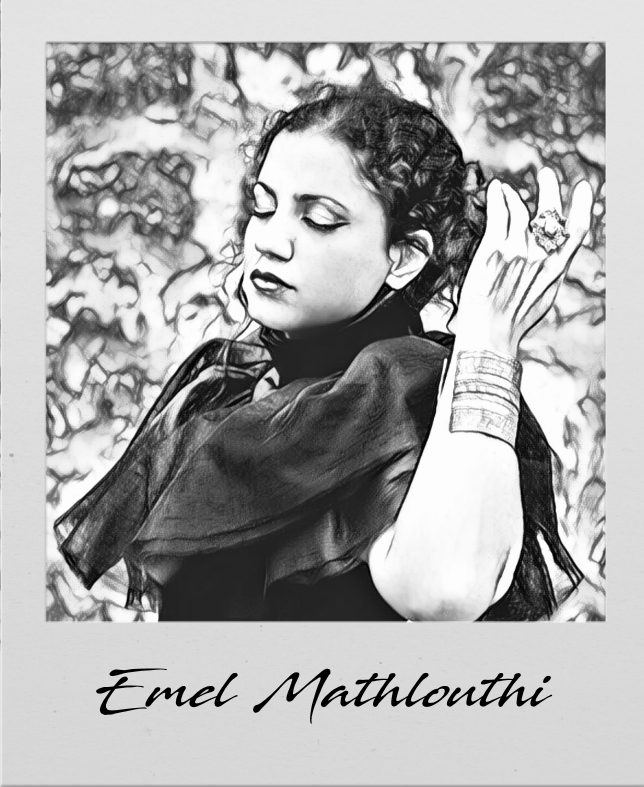
Emel Mathlouthi, or simply Emel, rose to national and international fame after a
recorded video of her during the protest in Avenue Habib Bourguiba, singing her
acclaimed song Kelmti Horraâ, went viral.
The song became an anthem for the Tunisian Revolution, which eventually led to Emel
getting invited to perform at the Nobel Prize ceremony in 2015, when Tunisia received
the Peace Nobel Prize.
But that wasn’t the beginning of Emel’s political oriented songs, as she released other
songs during the old regime such as Ya Tounes Ya Meskinaâ in 2006, which led to her
fleeing the country and moving to Paris in 2008 after the Ben Ali government banned her
music from the radios and TV. Yet her songs still, at the time, got attention and
performances of her circulated the Internet in Tunisia.
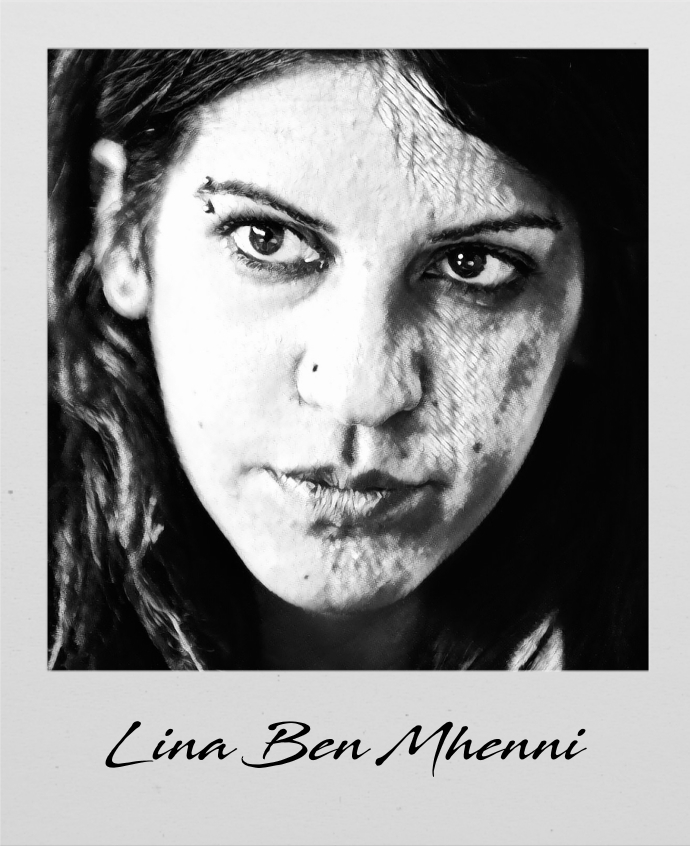
Lina Ben Mhenni was a Tunisian Internet activist and blogger, aside from being lecturer
in linguistics at Tunis University.
Born to a family of activates, her father Sadok was a political prisoner and her mother
was part of the student union movement.
Best known for her blog A Tunisian Girl, Lina shared her entries in French, Arabic and
English using her real name rather than adopting a pseudonym to protect herself: all her
social media and her blog were censored during the Ben Ali regime.
In 2010, she was a core organizer of a protest in Tunis against government’s
suppression of media and censorship of the Internet, and in 2011, she covered the early
weeks of the Tunisian Revolution throughout the country. Lina’s reports provided
uncensored information to other activists and international media.
Her activism continued after the revolution, as she was vocal against the continued
corruption of the Tunisian regime, amongst other topics. Lina and her father also
started an initiative to create libraries and promote culture in prisons to counter
terrorism.
In her final months as she struggled through her sickness, she criticized the terrible
state of hospitals in the country. Lina passed away due to lupus erythematosus and
kidney failure in January 2020.
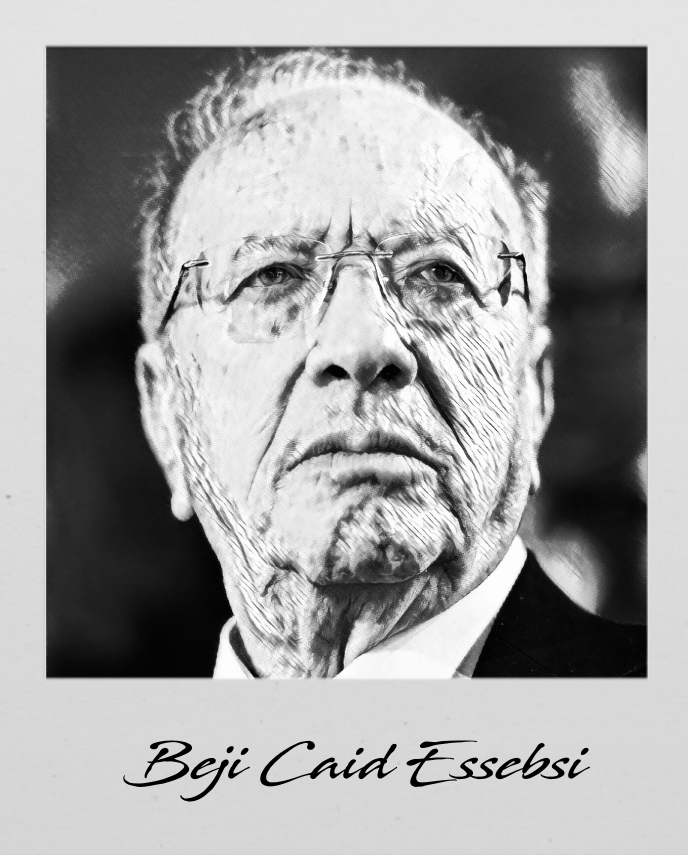
Beji Caid Essebsi was a Tunisian politician and State person, probably one of the most
controversial politicians through the recent history of Tunisia, as his career spanned
six decades.
Born to an elite family with Sardinian roots, BCE begun his political career in 1941,
when he joined the Neo Destour youth organization, then moved to Paris to study law in
1950 before beginning his career as a lawyer defendant Neo Destour activists : he
joined leader Habib Bourguiba at that time.
After the country's independence, he served as an advisor to Habib Bourguiba and held
different positions from 1957 to 1971, including Interior Minister, Defense Minister,
Ambassador to Paris...
BCE also served as a Minister of Foreign Affairs from 1981 to 1986, and was a supporter
of Ben Ali’s removal of then President Habib Bourguiba from power.
BCE made a comeback as an Interim Prime Minister in 2011, in the aftermath of the
Tunisian Revolution, after Prime Minister Mohamed Ghannouchi resigned.
After leaving the office, BCE formed the secular party Nidaa Tounes, that managed to win
the Majority of the seats in the 2014 October Parliamentary elections.
In December 2014, Beji Caid Essebsi won the presidential elections defeating Marzouki
at the age of 88, to become the first democratically elected President of Tunisia.
He served as a president until his death on 25 July 2019.
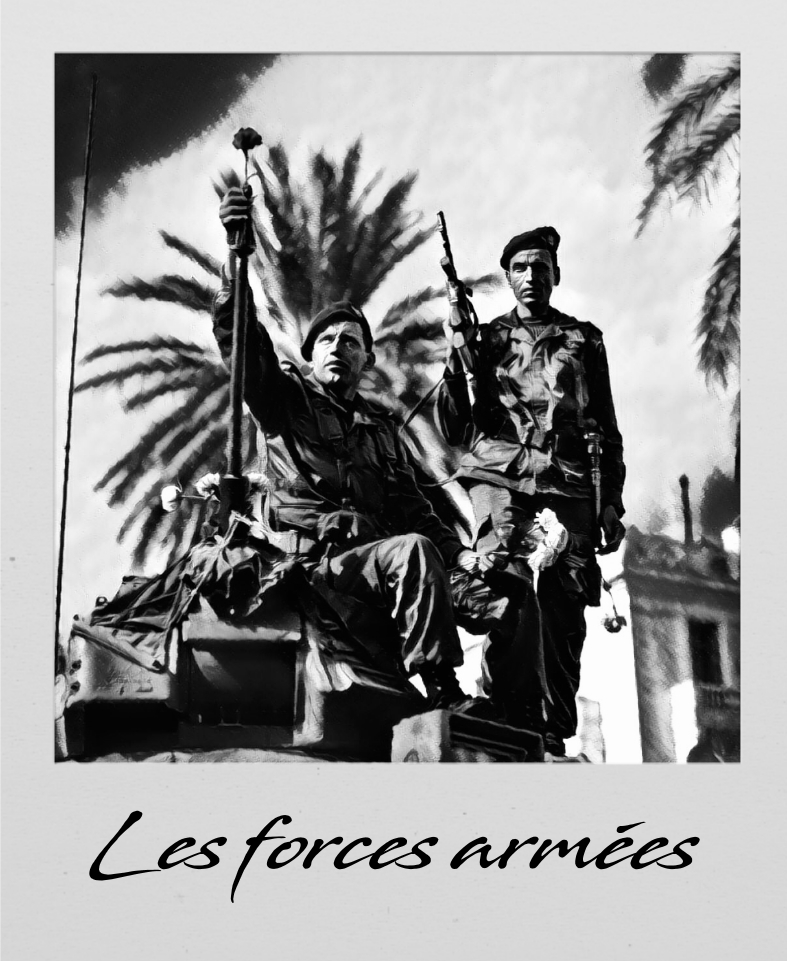
Military forces are one of the main reasons for the success of the Tunisian Revolution:
their decision to not get involved in the current ongoing situation and their refusal
to fire on protesters had major impact.
The Tunisian military is the smallest in the Arab world, with no experience in fighting
major wars, and mainly remaining in the barracks.
And being sidelined from political and economic power under former presidents Habib
Bourguiba and Ben Ali, along with being underfunded and under-equipped, played a big
role with the Revolution’s process, specially their lack of interest in supporting the
ruling family and anyone in power.
At the time when protests were bursting through the country, rumor said that Ben Ali
ordered General Rachid Ammar to fire on protesters, and that he refused to do so, a
rumor that made him hugely popular among people.
This decision was backed by the visible role of the military that insured the security
during and after the Revolution. Military forces are still playing a discrete role but
they benefit from trust and respect amongst citizens.
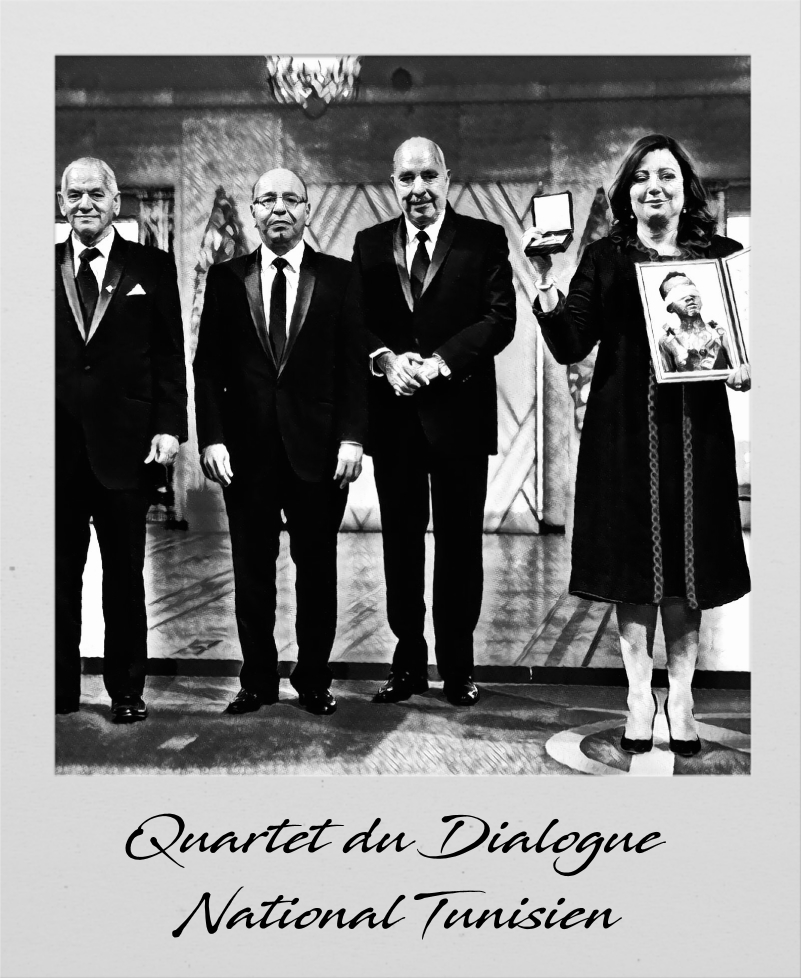
The National Dialogue Quartet is a group of 4 civil society organizations, represented
by Abdessatar Ben Moussa from the Tunisian Human Rights league, Noureddine Allegue from
the Order of Lawyers, Houcine Abassi from Tunisian General Labor Union, and Wided
Bouchamaoui from the Tunisian Confederation of Industry, Trade and Handicrafts.
The quartet was formed in summer 2013, due to a political crisis that caused the
constitutional process halt. The Quartet formed the main structure and backbone of the
National Dialogue and were joined eventually by 21 parties, and the dialogue was held
between August 2013 and January 2014.
The National Dialogue Quartet was awarded with the 2015 Nobel Peace Prize for their
effort and contribution to ‘building of a pluralistic democracy in Tunisia’.

The social media Revolution, or the Facebook revolution: many analysts consider that
this social media has been the main factor for the success and organization of the
Tunisian Revolution.
The platform was the way for people to share the ongoing events throughout the country:
from videos of the protests to information on where police were attacking people, news
regarding the situation...
People also used Facebook as a way to identify and alert one another about police
positions, snipers, looters, etc.
But Facebook’s role wasn’t limited to Tunisians and Tunisia only!
It was the main source of information for the rest of the world who followed what was
happening, with many activists promoting the events while official media in Tunisia
were not sharing news on the protests and tensions.
Social media also continued its role past Ben Ali fleeing the country, when the big
threat at the time was the chaos that could erupt: people managed to organize themselves
and protect their neighborhoods and therefore stoped the spread of destabilizing rumors.
Debates remain regarding social media’s role in the revolution, but a general agreement
now could be that if ‘they didn’t cause it, they helped enabling it’.
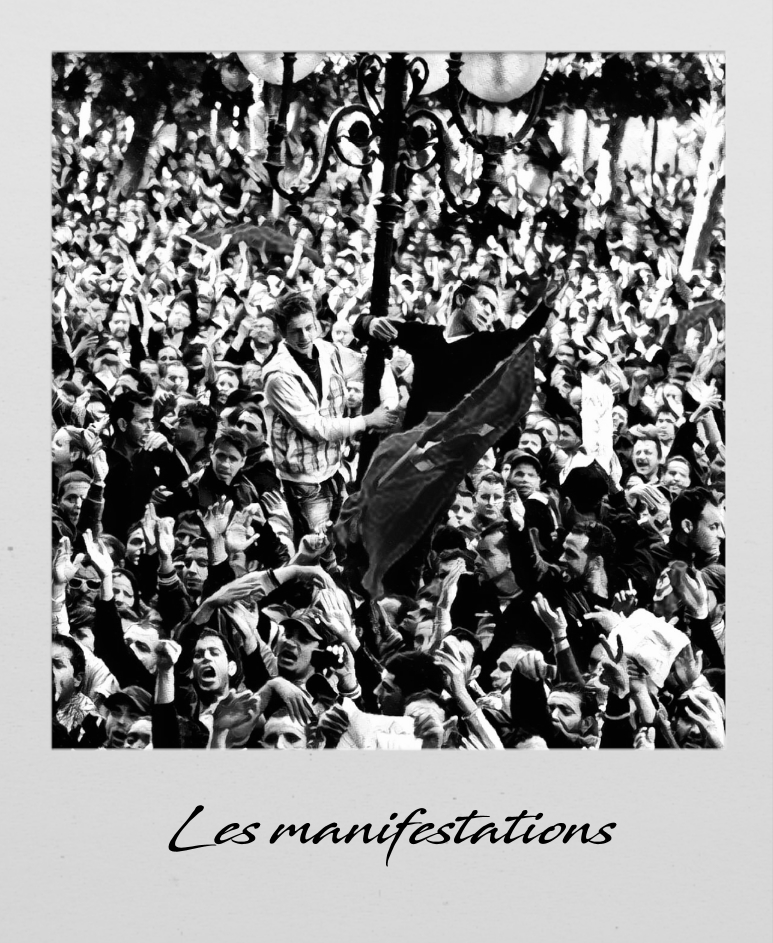
‘I have heard many descriptions for this revolution. Like Facebook Revolution. It was
not a Facebook revolution - it started on the ground, when Mohamed Bouazizi set fire to
his body, and the people in Sidi Bouzid started to demonstrate and were attacked by the
police’ - Lina Ben Mhenni
Debates regarding the nature of the Tunisian revolution never really stopped, regarding
the most influential actors : facebook activists or street protesters.
Nevertheless, the protests that started in Sidi Bouzid and spread in December 2010 are
symbolic: for the first time under Ben Ali’s regime, protesters criticized the Power
and dared to extend critics to the system, including the Ben Ali family. This had never
happened during the 24 years of Ben Ali’s strong regime.
Tunisia is familiar with social protests, and many had happened in the past years: Mine
workers in 2008, Bread protests in 1984, etc. These protests were targeting an issue and
asking for a socio-economical response.
In 2010, protesters went further and expressed their will of change, resumed in a
symbolic anthem: ’dégage’.
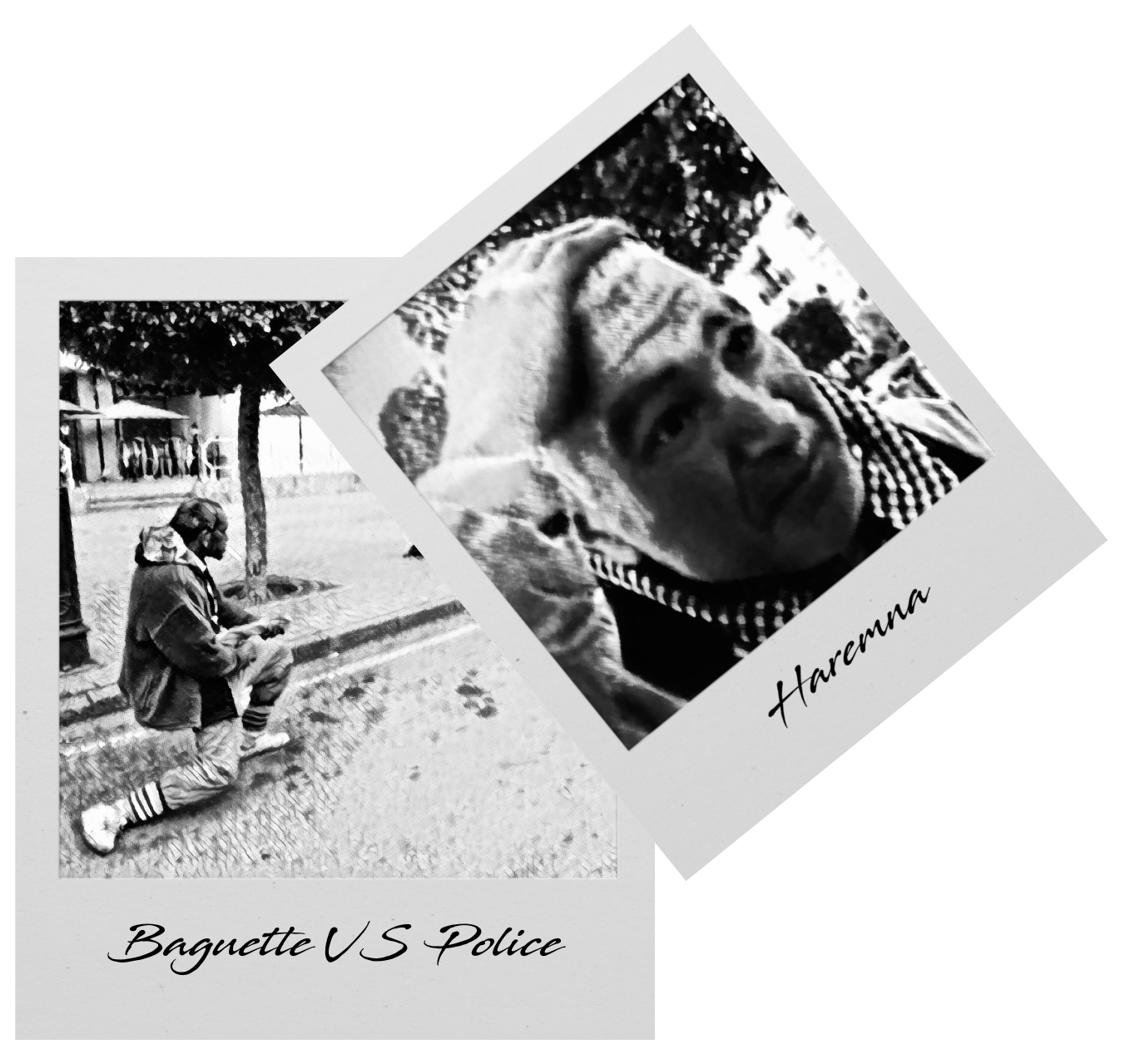
Historical events always have faces or moments that go viral and will remain as images
of the moments: the acapella song by Emel in the protests or the famous ‘dégage’ slogan.
Everybody will also remember the pictures of this man on Avenue Bourguiba, pointing his
‘Baguette’ to the Police, or this other, shouting on avenue Bourguiba after
confirmation that Ben Ali had left the country, with this emblematic word, ‘harimna’.

